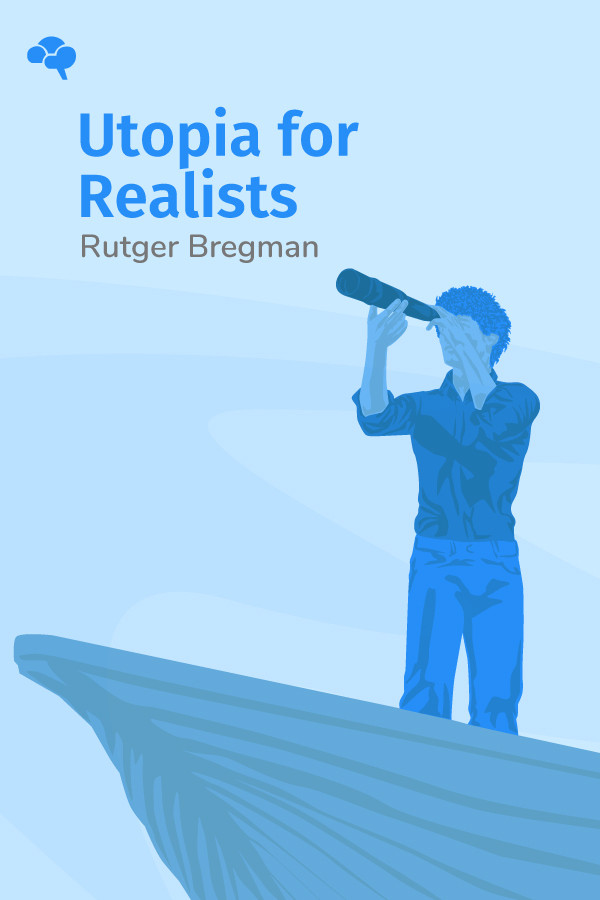

What You'll Learn:
In Medieval Europe, there was an imaginary land called Cockaigne that the common folk would dream about. You arrive at Cockaigne by successfully eating through several miles of rice pudding, and once ushered into this glorious realm, pies and cakes rained down from the heavens, the rivers overflowed with wine, and there was free love, dancing, and leisure for all—from the noble to the clergymen to the serf. Seven hundred years later, we look at Western Europe and we see that the fantasy of Cockaigne has been realized: an overabundance of readily available food, murder rates one-fortieth of what they were in the Middle Ages, parties, and people ready to give and receive free love. Obesity is more likely than starvation.
Dutch historian Rutger Bregman argues in Utopia for Realists that we have realized this Cockaigne that our ancestors would have considered a utopia reserved for their fantasies, but that the dream is starting to go stale. We find ourselves in a historical moment where, once again, we need another Cockaigne: new horizons on which humanity can set its sights. A historical track record gives us reason to believe that dreaming of a better future is not naïve, but the path history has taken time and again. Bregman submits that it’s time to start dreaming again, and he gives us some ideas that could serve as ambitious guideposts to aim for.
Key Insights:
- The most chilling utopias are the ones presented in high resolution and taken too seriously.
- Giving the poor no-strings-attached money is playing the long game—not the short game.
- Our intuitions about the so-called lazy poor have been profoundly shaped by a historic case study that was entirely bogus.
- A 15-hour work week sounds like a crazy idea now, but we were trending toward that between 1850 and 1980.
- Rejecting open borders means rejecting trillions of dollars and the wanderlust that flows through humanity’s veins.
- Some of yesterday’s crazy ideas have become today’s norms.




